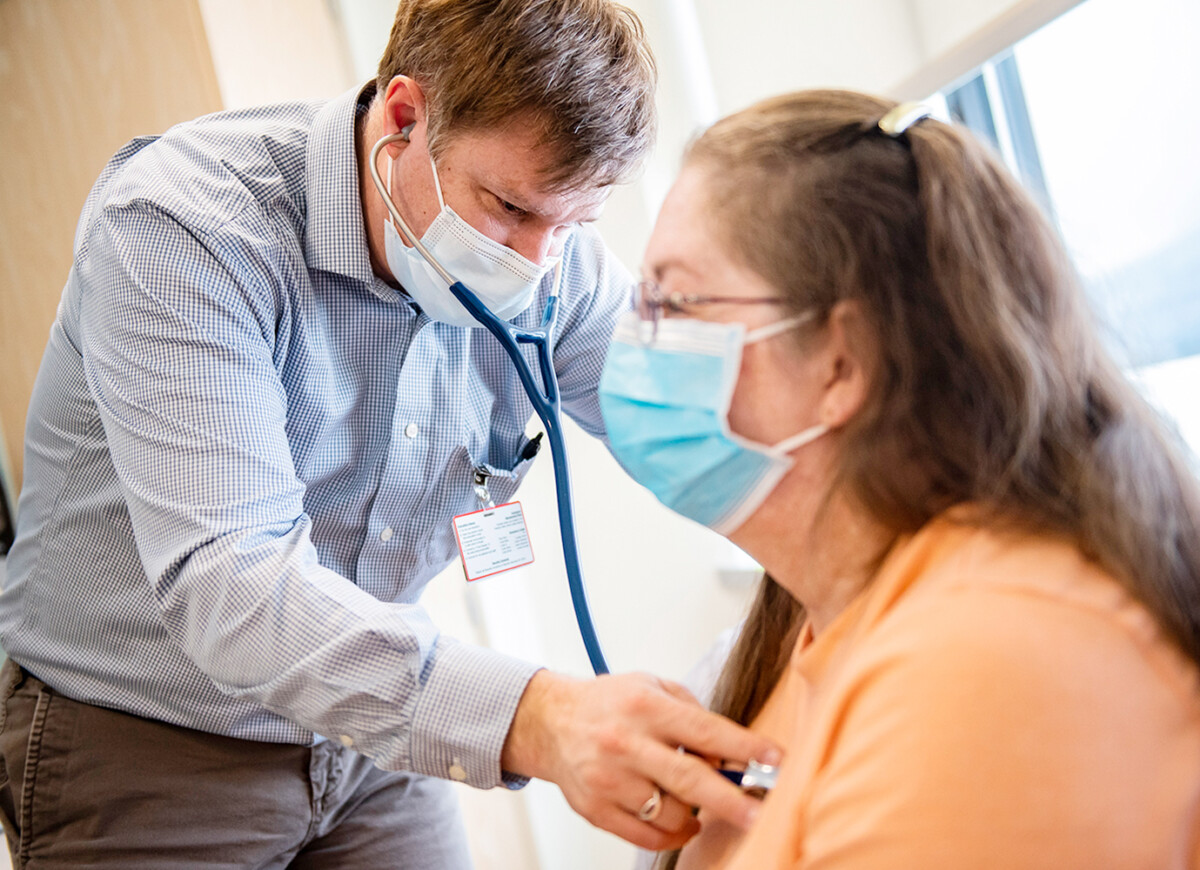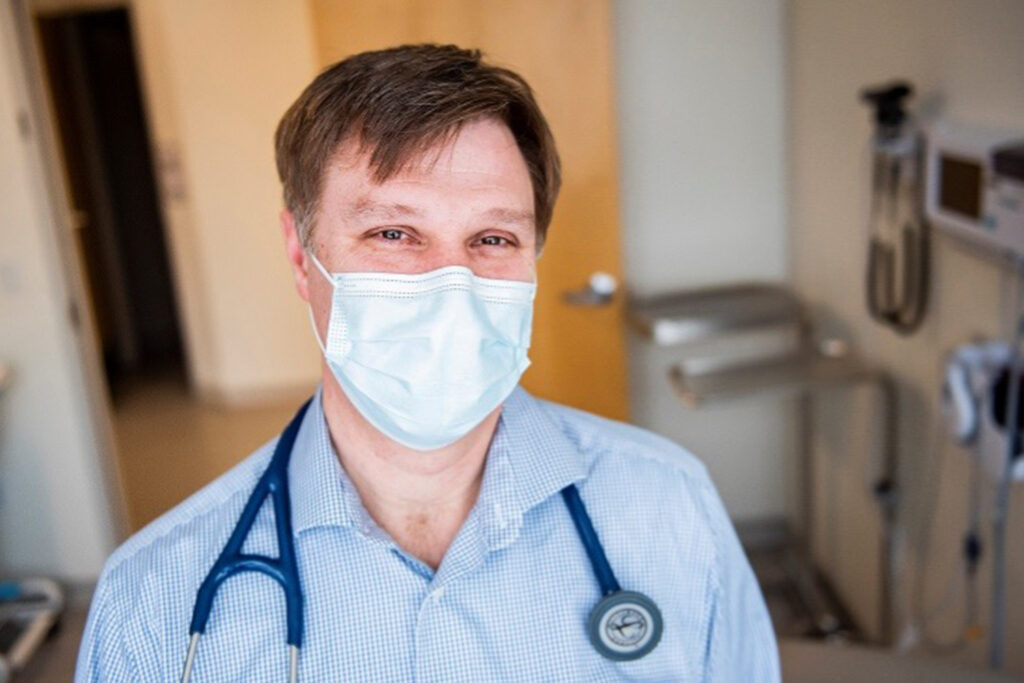Heart Care Hits The Road

The earlier Gavin Noble, MD, can discover a problem with a patient’s heart, the better.
But when that patient lives in a rural community, where specialty care like cardiology isn’t available close by, discovering that problem can be impossible.
From Ticonderoga, it’s more than an hour drive to Champlain Valley Physicians Hospital in Plattsburgh, and nearly as far to Middlebury, let alone Burlington. That’s a lot of gas money for people who might be on Medicare, are retired, on a fixed income or on disability. And many aren’t seeking care because of those barriers.
Dr. Noble, a cardiologist at UVM Health Network – Porter Medical Center in Middlebury, Vermont.
‘You’ve Got To Find It To Fix It’
Heart disease continues to be the leading cause of death in the US, according to the Centers for Disease Control and Prevention (CDC), followed by cancer and COVID-19. In 2020 alone, heart disease killed nearly 700,000 Americans. By comparison, COVID-19 death rates were about half that. To understand health outcomes by geography, a CDC study found that rural Americans are more likely to die of heart disease compared to those living near urban areas with better access to health care.
That’s a big concern for the UVM Health Network and cardiologists like Dr. Noble. Fortunately, the structure of the health network allows providers to coordinate resources and offer cardiology clinics in rural areas.
Dr. Noble brings cardiology care beyond the walls of his home base, Porter Medical Center, and into places like Brandon, Vermont, and UVM Health Network – Elizabethtown Community Hospital’s campus in Ticonderoga, New York. Because Dr. Noble travels, his patients don’t have to.
“About 50% of the patients we are seeing are new,” says Dr. Noble about Ticonderoga. Dr. Noble has been bringing his practice to the Ticonderoga, New York campus for the past two years.
Patient Susan Densmore used to drive more than 45 minutes to Middlebury, or sometimes even University of Vermont Medical Center – an hour and a half away – for cardiac care. For the first time, she got that same care in Ticonderoga. Her drive time: five minutes.
With gas prices so high and a road closure that makes the drive to Middlebury even longer, having Dr. Noble so close is a godsend, she says. “I was thrilled,” she says, about the opportunity to see a cardiologist close to home.
Dr. Noble fears that, if his patients had to travel for an appointment, they’d think twice. Especially now, when many patients are sicker because they have deferred care during the pandemic, Dr. Noble says reaching rural communities is vital to catching health issues before a patient lands in the hospital. One patient, Dr. Noble recalls, was suffering from A fib for weeks, but didn’t want to travel far. A fib is a type of abnormal heart rhythm that can be a possible sign of early heart failure and can be deadly if left untreated. Dr. Noble was able to see them in Ticonderoga, start treatment and now their prognosis is good.
Similar UVM Health Network programs are underway across Vermont and Northern New York to increase access to other specialties. Providers from Champlain Valley Physicians Hospital, UVM Medical Center and Porter Medical Center are now bringing dermatology, colonoscopy, endoscopy, women’s health and orthopedic specialty care to Elizabethtown Community Hospital and the Ticonderoga campus. That community connection and convenience, says Dr. Noble, makes all the difference for those living in rural areas.

We’ve had a couple people who had not seen a doctor for years,” says Dr. Noble about his cardiology practice. “But thanks to our being here and offering a reliable, consistent schedule, we’ve been able see them. We’ve kept them out of the hospital.
